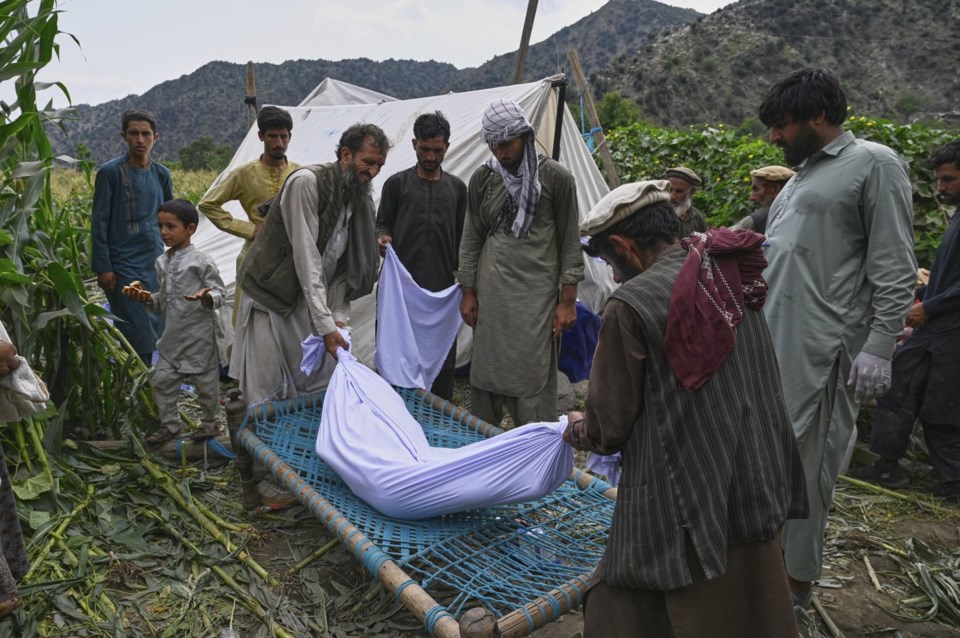JALALABAD, Afghanistan (AP) — Hundreds more bodies have been recovered from houses in mountain villages destroyed by a major earthquake in Afghanistan early this week, pushing the death toll to over 2,200, a Taliban government spokesman said Thursday.
The shallow, magnitude-6.0 quake struck the mountainous and remote eastern part of the country late Sunday, leveling villages and trapping people under rubble. Most of the casualties have been in Kunar province, where people typically live in wood and mud-brick houses along steep river valleys separated by high mountains.
Some 98% percent of the buildings in the province were damaged or destroyed, according to an assessment issued Thursday by the Islamic Relief charity. Aid agencies said they were sorely in need of staff and supplies to tend to the region's survivors.
Muhammad Israel said the quake unleashed a landslide that buried his home, livestock, and belongings in Kunar. “All the rocks came down from the mountain," he said. “I barely got my children out of there. ... The earthquake jolts are still happening. It is impossible to live there."
He was staying at a U.N. medical camp in Nurgal, one of the worst-affected districts. “The situation is also bad for us here, we don’t have shelter and are living under open skies," he said.
Previous estimates said some 1,400 people were killed. Taliban spokesman Hamdullah Fitrat said Thursday that the updated death toll was 2,205 and that search and rescue efforts were continuing.
“Tents have been set up for people, and the delivery of first aid and emergency supplies is ongoing," Fitrat said.
The rough terrain is hindering relief efforts. Taliban authorities have deployed helicopters and airdropped army commandos to help survivors. Aid workers have reported walking for hours to reach villages cut off by landslides and rockfall.
Funding cuts are also having an impact on the response. The Norwegian Refugee Council said it had fewer than 450 staff in Afghanistan whereas it had 1,100 in 2023, the date of the last major quake in the country. The council only had one warehouse remaining and no emergency stock.
“We will need to purchase items once we get the funding but this will take potentially weeks and people are in need now,” said Maisam Shafiey, the communications and advocacy advisor for the council in Afghanistan.
“We have only $100,000 available to support emergency response efforts. This leaves an immediate funding gap of $1.9 million," Shafiey said.
Dr. Shamshair Khan, who was attending the injured at the U.N. camp in Nurgal, said his own condition had deteriorated after seeing the suffering of others.
“Neither these medicines are enough nor these services,” he said. “These people need more medicine and tents. They need food and clean drinking water. These people are in great pain.”
Qatar’s minister of state for international cooperation, Maryam bint Ali bin Nasser Al Misnad, arrived in Kabul on Wednesday to oversee the delivery of aid to earthquake victims.
She is the first female minister to visit Afghanistan on a humanitarian mission since the Taliban seized power in 2021, and the first high-ranking foreign official to travel there since the quake.
Aid organizations describe the latest disaster as a crisis within a crisis. Afghanistan was already struggling with drought, a weak economy and the recent return of some 2 million Afghans from neighboring countries.
—-
Associated Press writer Hedayat Shah contributed from Nurgal, Afghanistan, and Abdul Qahar Afghani contributed from Jalalabad, Afghanistan
The Associated Press



